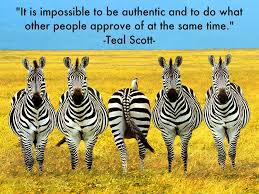 In the course of working with groups and individuals, and reading around various topics, I come across a number of articles and resources that I have found helpful. It’s an eclectic bunch! Continue reading
In the course of working with groups and individuals, and reading around various topics, I come across a number of articles and resources that I have found helpful. It’s an eclectic bunch! Continue reading
Tag Archives: coaching
Coaching skills for Managers
Coaching skills for Managers
 Line managers are increasingly expected to coach staff and can have a powerful influence on their teams and the organisation as a whole when they adopt a coaching style of management.
Line managers are increasingly expected to coach staff and can have a powerful influence on their teams and the organisation as a whole when they adopt a coaching style of management.
As a way of managing people, coaching differs from the traditional corporate ‘command and control’ approach in the following ways:
- Collaborating instead of controlling
- Delegating more responsibility
- Talking less, listening more
- Giving fewer orders, asking more questions
- Giving specific feedback instead of making judgements
This is not simply a case of ‘being nicer’ to people – delegated responsibility brings pressure to perform and coaching Managers maintain a rigorous focus on goals and results.
Simply put, coaching means asking questions, not simply to gather facts but to elicit solutions, feelings, ideas and new thoughts from the person being coached. If the objective is to develop employees, asking them questions challenges them to think harder and more broadly about issues, thereby enlarging their perspective and improving their reasoning skills. When the need is to make decisions, the same coaching skills can generate better solutions. The skill of coaching is in being able to ask questions that help people open up, and bring into play a wider circle of ideas and expertise.
Some people argue that it is impossible for a Manager to act as a coach, given her position of authority over her team. While authority is an important issue, it need not be an insurmountable obstacle – as long as there is genuine trust and respect in the working relationship. It is also a fact that coaching frequently takes place between peers and even upwards on occasion, with some enlightened bosses happy to be coached by their team members.
CIPD Research
In a recent survey of over 600 HR specialists and line Managers, people were asked what skills they need to be coaching Managers and what influences coaching management approach.
 Two related features of a coaching style of management were identified: primary coaching characteristics, which focus on performance, and mature coaching characteristics, which focus on empowerment. Primary coachingcharacteristics comprise: a development orientation, a performance orientation, effective feedback processes and successful planning and goal-setting activities. Mature coaching characteristics, which are also associated with a participative management style, include: using ideas from team members, powerful questioning, team-based problem solving and shared decision-making.
Two related features of a coaching style of management were identified: primary coaching characteristics, which focus on performance, and mature coaching characteristics, which focus on empowerment. Primary coachingcharacteristics comprise: a development orientation, a performance orientation, effective feedback processes and successful planning and goal-setting activities. Mature coaching characteristics, which are also associated with a participative management style, include: using ideas from team members, powerful questioning, team-based problem solving and shared decision-making.
Mature coaching characteristics are more likely to be achieved by those in more senior positions, who often have more “discretionary time” and are less caught up in the operational challenges that dominate life for line managers.
Coaching by line Managers is associated with levels of manager self-confidence and good Manager/team relationships. At the same time, these factors may encourage Managers to engage more often in coaching behaviours.
Time constraints are the most significant barrier to achieving a coaching style of management, but organisational culture and a lack of confidence to deal with difficult people are also inhibitors.
Clarity in coaching roles and expectations, senior management ownership of coaching as a business issue and top management role-modelling of coaching characteristics are all important ingredients of a coaching culture.
What Coaching Managers do
 Managers have many responsibilities; coaching is among the most important. Coaching does not simply correct today’s problem; it helps keep the problem from resurfacing. The employee not only understands the goal, but can teach it to others. Coaching may take longer than correcting, which is a “quick fix,” but it is longer-lasting. It builds a body of understanding, and, if done well, helps build a workplace culture.
Managers have many responsibilities; coaching is among the most important. Coaching does not simply correct today’s problem; it helps keep the problem from resurfacing. The employee not only understands the goal, but can teach it to others. Coaching may take longer than correcting, which is a “quick fix,” but it is longer-lasting. It builds a body of understanding, and, if done well, helps build a workplace culture.
How does a Manager shift from a directive approach to Manager as Coach?
1. Managers know their staff. They pay attention to their work and to them as human beings. They never make assumptions about the motives that drive the individuals’s words or actions. They take time to learn the person’s hopes, fears, and history.
2. Managers check their egos at the door. They resist trying to impress staff with their knowledge. Their satisfaction comes not from hearing someone say “how do you know so much?” but in seeing the individual grow his or her skills. When coaching is done well, learners believe they personally have discovered ideas and answers, hence, they may never acknowledge the Managers’s contribution. And that should be just fine with the Manager.
3. Managers ask questions. What did you see out there? What did you like most about the assignment? What’s causing you concern? How would you like to approach the problem? Who else might we want to include? Is there another way to look at this? What would happen if we turned things upside down?
4. Managers listen completely. They resist the temptation to give instant advice or answers, even if they have them at the tip of their tongue. They give the individual time to get a point out fully, and only then work to develop a coaching conversation. They resist phone calls, door knocks, and the errant material lying on top of their desks. When coaching is underway, the most important gift a Manager gives is complete attention.
5. Managers are overall, positive. They emphasize growth and goodness. They catch people doing things right and reward them with praise. Managers are not insincere or flattering; they are genuine and specific in their praise. They give the individual details about what is being praised and why. They do not shy away from honest feedback about things that need strengthening, but even critical feedback is framed in a non-threatening manner.
6. Managers look for “teaching moments.” They are always on the alert for opportunities to reinforce values and skills. These are teaching moments. They may happen in formal meetings or casual conversations; in bringing people together, in calling upon a person to share the “how I did it” of a success story with others, through department-wide memos or personal notes. But when it comes to teaching moments, Managers are careful: they praise in public, and criticise in private.
7. Managers inspire. You may not think of yourself as an inspirational figure, and your humility is laudable. But even the most humble leaders are known for their values. People around them know what they stood for. What do you stand for? It can take courage to be inspirational, to overcome your own fears.People will watch what you do, more than what you say.
8. Managers are responsible risk-takers. They know the rules of the road so well that they don’t fear an occasional detour. They celebrate creativity that respects values but tries things a different way. They reward innovation. They aren’t afraid to laugh at themselves or look foolish to help get an important point across. While helping others grow, they are always challenging themselves to do the same. They do not fear change or challenge. They do not hesitate to say “I’m sorry” when they make mistakes. And even the best do.
What’s in it for Managers?
It’s probably fairly obvious that coaching benefits the people being coached – but what about the Manager? If you are a busy Manager, can you afford the time and effort required, when you already have plenty of other demands to cope with?
Coaching is not a case of ‘giving up’ your time and energy to helping others achieve their goals and solve their problems – it will also benefit you in the following ways:
A more committed team: empowerment is a powerful motivator. When you make a genuine effort to include people in setting their own goals, making decisions and implement their own ideas, they are likely to become more committed and focused at work.
Better team performance: because of its dual functions of managing performance and developing people, coaching leads to better individual and collective performance. The ongoing learning process means that the upward curve can get steeper over time.
Better working relationships: good coaching promotes trust and collaboration, and leads to better working relationships. It doesn’t mean you become everyone’s best friend, but it does mean working relationships can get easier and more enjoyable (or in some cases at least less stressful) for all concerned.
Better ideas: when you get into the habit of asking questions to draw out people’s creativity, you may be pleasantly surprised at the quality of ideas your people start generating. After a while, you may not even need to ask every time – they will get into the habit of bringing you suggestions.
Better information: if you are genuinely coaching people in a collaborative, open spirit, people will feel more confident in coming to you with vital information – including telling you the ‘bad news’ while there is still time to do something about it.
Investing time to gain time: there is no doubt that in the short term it’s often quicker to ‘take charge’ and give orders instead of coaching. That’s fine for ‘fire fighting’, but in the long term, the more you direct, the more people will rely on you for directions, and the more of your time will be swallowed up by it. If you invest time in coaching however, over time your people will require less and less direction, and you will be confident in delegating more and more to them – freeing up your time for the tasks only you can accomplish.
What might it look like in practice?
 Suppose someone comes to you with a story of something that’s gone wrong. As a good Manager/coach, there are three useful things to do at this point:
Suppose someone comes to you with a story of something that’s gone wrong. As a good Manager/coach, there are three useful things to do at this point:
LISTEN to the story – get the details, express concern, show how important it is by giving excellent attention.
AFFIRM the bringer of the bad news – let them know how important it is that they raised this issue, what you’re impressed by about them, their speed of action, concern for customers, etc.
TURN THE CORNER from focusing on what’s wrong to focusing on what’s wanted.
Some good questions that can help here include:
• “So, instead of that, what you want is…..?” (let them finish the sentence)
• “What do you want to have happen next time?”
• “What would be better than that, for everyone?”
The individual may not have thought about this, being focused on what’s wrong. They may fall silent for a moment. Let them. Give them plenty of time to think about it. As always, a period of silence here is a good sign for the Manager Coach; there is thinking going on.
Expand the answer by asking, “What else?” to get more detail. Then ask about others’ perspectives on what would be preferable.
Reflections and practical Tools
Managing in a coaching style is ultimately about benefits to the team, the individual team, members and the Manager, and could even be seen as enlightened self interest as an approach.
Its important to say that this style of management isn’t the only one, and the principle of “situational leadership” an important caveat; there will be times as a Manager to be directive.There is good evidence though, that using a predominantly coaching style brings medium-long term benefits to all concerned.
As always, the approach sits best in an enlightened organisational context, where Senior Managers fundamentally believe in the approach, and where there is a learning culture of training for Managers, along with a recognition of the importance of the key HR practices of supervision, appraisal and regular team communication.
Leadership Styles Questionnaire 2013 looks at your leadership style in the context of 4 different styles, and reflect on what situations you might need to flex that style dependent on the person and the context.
If you want to go one step further and gain feedback on what your Team thinks of your leadership style, plus a simple feedback “start,stop,continue” exercise download the Leaderships Styles Informal 360 review exercise.
Supervision Skills
Supervision Skills
 The definition of Supervision is “management by overseeing the performance or operation of a person or group”.
The definition of Supervision is “management by overseeing the performance or operation of a person or group”.
The roots of what we have come to know as supervision lie in areas like the development of social work and casework, and other professional areas like psychotherapy or occupational therapy. As a practising Coach, I am required to have coaching supervision as part of my practice, and from its original context in professions like social work, it has become a requirement in a number of medical professions, and in the voluntary sector. Continue reading
Values and beliefs Tools
Values and Beliefs Tools
Values represent your core beliefs. What is important to you? What drives you? These create the building blocks for everything you do. These create your base. Everything grows from here. At their heart, they are fundamental “policies” that define who we are. Continue reading
Why we need introverts
Why we need introverts
I came across this article in the online Guardian based on a book by Susan Cain, and think it makes some really interesting points. For me, there is some difference between how I am at work and at home (much more extroverted at work), but probably most naturally what I would define as a “gregarious introvert”. Continue reading
Self confidence in Coaching work
 Self confidence in Coaching work
Self confidence in Coaching work
Self-confidence refers to a feeling of trust in one’s abilities, qualities, and judgement. Confidence” comes from the Latin fidere, “to trust.” To be self-confident is to trust in oneself, and, in particular, in one’s ability or aptitude to engage successfully or at least adequately with the world. A self-confident person is ready to rise to new challenges, seize opportunities, deal with difficult situations, and take responsibility if and when things go awry. Another way of putting is about individuals having a deep conviction and feeling in their own importance and value as a person, irrespective of their performance and behaviour. I understand none of us are immune from others opinions, but generally self confidence is like a well rooted tree of self awareness and a positive view of self.
A few overall thoughts on self confidence in relation to coaching;
- The first thought building on the definition of self confidence is that the highest form of self confidence is from the inside out, rather than the outside in. If a person needs validation from outside all the time they look to others too frequently for affirmation, recognition
 and approval. They gain their confidence through a sense that others are approving of them, their choices and behaviour. One of the the main issues with needing external validation is just how tiring it can be to have to perform for others all the time. This isn’t to say that we don’t need an awareness of others, but a sense that we are filling our own reservoir, with a bit of top up from others, not the other way round. In coaching work this may be looking at how much internal reflection and self compassion the individual gives themselves.
and approval. They gain their confidence through a sense that others are approving of them, their choices and behaviour. One of the the main issues with needing external validation is just how tiring it can be to have to perform for others all the time. This isn’t to say that we don’t need an awareness of others, but a sense that we are filling our own reservoir, with a bit of top up from others, not the other way round. In coaching work this may be looking at how much internal reflection and self compassion the individual gives themselves.
2. I am struck in coaching work in self confidence around the idea of authenticity and values. Having authenticity is about having a good degree of self awareness and making choices that align with knowing who you are, your strengths, your challenges, and ultimately, your values. Values represent your core beliefs: what is important to you?  What drives you? These create the building blocks for everything you do (there is more around values and coaching tools for these here). These create your base. Everything grows from here. At their heart, values are fundamental “policies” that define who we are, and when we wander too far from them, we can lose a sense of our core. Sometimes people haven’t ever had the opportunity to look at what their underlying values and purpose are , particularly professionally.
What drives you? These create the building blocks for everything you do (there is more around values and coaching tools for these here). These create your base. Everything grows from here. At their heart, values are fundamental “policies” that define who we are, and when we wander too far from them, we can lose a sense of our core. Sometimes people haven’t ever had the opportunity to look at what their underlying values and purpose are , particularly professionally.
3. The next thought is being able to embrace our vulnerability. I sometimes reflect when I see behind individuals intricately built and outwardly effective screens/masks, how much they are struggling with feelings of low self esteem and “imposter syndrome”.  One of the key principles of vulnerability expressed in Brene Brown’s work is to understand that we are not alone; there is a universality to feelings of periodic anxiety and vulnerability that others feel too, and it can help to be able to share these feelings with trusted others that somehow help us to overcome and defeat them over time.
One of the key principles of vulnerability expressed in Brene Brown’s work is to understand that we are not alone; there is a universality to feelings of periodic anxiety and vulnerability that others feel too, and it can help to be able to share these feelings with trusted others that somehow help us to overcome and defeat them over time.
4. Finally, holding onto our resilience. The whole area of resilience is an important constituent of self confidence. None of us sails through life without tough stuff happening. Resilience is the ability to recover quickly from setbacks and adversity: to stay committed and increase our efforts when the going gets tough, and have a well developed “bounce back facility”.This coping may result in the individual “bouncing  back” to a previous state of normal functioning, or even using the experience of exposure to adversity to produce a “steeling effect” and function better than expected. For me its linked closely to self confidence, as it provides us with the faith that we will steady the ship, that even in the midst of tough times, we will emerge out the other side intact and have gained a lot of learning from the experience. The encouraging thing about resilience is that if we know what to work on to build our self resilience reservoir, we cal learn to do this.
back” to a previous state of normal functioning, or even using the experience of exposure to adversity to produce a “steeling effect” and function better than expected. For me its linked closely to self confidence, as it provides us with the faith that we will steady the ship, that even in the midst of tough times, we will emerge out the other side intact and have gained a lot of learning from the experience. The encouraging thing about resilience is that if we know what to work on to build our self resilience reservoir, we cal learn to do this.
Working with low self confidence issues isn’t uncommon in Coaching. If I reflect on client work over the last few years, I can hardly think of a instance where self confidence hasn’t been part of the coaching work in some form or other. There are a number of possible tools that may help identify the causes of low self esteem, and some that help “find” or bolster self confidence that has temporarily been lost.
Diagnostic Tools
These are tools that help the client and the coach identify in more depth the issues and challenges the client is facing with self confidence, before moving onto possible ways to understand where things go wrong, and how they can react differently (click on the blue highlighted words to go to links/downloads of the tools) :
“Autobiography”
- Asking someone starting work in Coaching about the whole of themselves is a useful and probably essential part of the initial session. The “whole” person has evolved from life experience, so for both the client and the Coach, telling and hearing the life story is one way to begin to understand the client’s world.
- It’s important to take care with this tool, and not to stray too far into interpretative aspects, but it can unearth important aspects of where aspects of low self esteem
 originate from, whether recent or longer standing
originate from, whether recent or longer standing - It’s also important to stress the Coaching approach here, rather than more of a therapeutic approach. In the latter, it may be enough to bring issues around low self esteem to the persons awareness to be able to “work through”, but in a Coaching context its more about an action orientation; e.g. using CBT techniques in troubling situations the client faces
- For more information on how to use the AUTOBIOGRAPHY tool click on the highlighted word
Self confidence assessment
- A series of questions to help the client (which could be done at a session or independent of a session and brought to talk through)
 Covers areas such as: what is self confidence; where do you struggle with it? What are your coping mechanisms?
Covers areas such as: what is self confidence; where do you struggle with it? What are your coping mechanisms?- To view an example template of the Self Confidence Review, click on the highlighted words
- Or alternatively, complete the Mind Tools self confidence questionnaire
Practical Working exercises
Psychoach : the ABDCE way of thinking
A CBT technique that helps clients challenge difficult situations they encounter by taking them through a 5 step process of challenging negative thoughts and feelings, and thinking about difficult situations in a more balanced and realistic way
- To convince yourself that you’re a successful person who can continue to achieve great things, it may be helpful to take some time and reflect on all your achievements and what matters to you. This exercise commits people to
 acknowledging their achievements through looking at their values, their skills and attributes, and tangible and intangible achievements
acknowledging their achievements through looking at their values, their skills and attributes, and tangible and intangible achievements - Part of the sustaining part of the work is for the client to keep the exercise close at hand to refer back to over time
The Anchoring technique works on the basis of using an “anchor feeling” of positivity, especially when faced with a difficult situation. It requires the client to select a feeling  they would like to have in a particular situation and create a physical “anchor” of that feeling that they can go back to when they need to
they would like to have in a particular situation and create a physical “anchor” of that feeling that they can go back to when they need to
- A driver is a part of us that believes if we behave in a certain way then we will do well, avoid problems and earn the respect of others (e.g. hurry up, be perfect, please people). There are five characteristic working styles, called “Drivers”, and each of us tends to have a preference for one or two particular styles, taken from Transactional Analysis theory
 Whilst our driver can sometimes be strength, under stress it can severely limit our capacity to be effective. The more stressed we get, the more we get locked into compulsive driver behaviour. This exercise requires people to find their key and secondary driver, and work out some improvement strategies
Whilst our driver can sometimes be strength, under stress it can severely limit our capacity to be effective. The more stressed we get, the more we get locked into compulsive driver behaviour. This exercise requires people to find their key and secondary driver, and work out some improvement strategies
The Co-Active Coaching model
The Co-Active Coaching Model
The Co-Active approach comes from “Co-Active Coaching – New skills for coaching people toward success”, by Laura Whitworth, Karen & Henry Kimsey-House and Phillip Sandahl, and offers a different approach to the “GROW” model we know and love…! Continue reading
The Autobiography approach
The Autobiography approach
 Asking someone starting work in Coaching to take you through their background is an important part of an initial session. It establishes rapport and interest in the whole person, not just the work person. The “whole” person has evolved from life experience, so for both the client and the Coach, telling and hearing the life story is one way to begin to understand the client’s world Continue reading
Asking someone starting work in Coaching to take you through their background is an important part of an initial session. It establishes rapport and interest in the whole person, not just the work person. The “whole” person has evolved from life experience, so for both the client and the Coach, telling and hearing the life story is one way to begin to understand the client’s world Continue reading
What Jung would have made of the world today
What Carl Jung would have made of the world today
I came across this article on the BBC web site, and was intrigued, so have reproduced it in its entirety:
“The afternoon of life must have a significance of its own and cannot be merely a pitiful appendage of life’s morning,”
Carl Gustav Jung died 50 years ago today. Alongside Sigmund Freud, he is arguably one of the two people of the 20th century who most shaped the way we think about who we are. But what would he make of the 21st century so far, asks Mark Vernon. Continue reading
Neuro Linguistic Programming (NLP)
Neuro Linguistic Programming (NLP)
Neuro-Linguistic Programming (NLP) is a controversial approach to psychotherapy and organisational change based on “a model of interpersonal communication chiefly concerned with the relationship between successful patterns of behaviour and the subjective experiences (esp. patterns of thought) underlying them”. Its also referred to as “a system of alternative therapy based on this which seeks to educate people in self-awareness and effective communication, and to change their patterns of mental and emotional behaviour”. Continue reading
Transactional Analysis overview
Transactional Analysis overview
“The eternal problem of the human being is how to structure his/her waking hours”
Eric Berne, Games People Play
Transactional analysis, commonly known as “TA” to its adherents, is an integrative approach to the theory of psychology and psychotherapy. It is described as integrative because it has elements of psychoanalytic, humanist and cognitive approaches.
Coaching skills overview
Coaching Skills overview

This overview offers a definition of Coaching with a detailed fact sheet, as well as additional pages you can look at which offer an overview of other frameworks of support, such as Transactional Analysis and NLP.
Continue reading
Coaching overview articles
Coaching overview articles

“Coaching is a conversation with a purpose, also a space where someone can think through what is going on for them/an opportunity to do ‘great thinking’’ (Starr 2008)
The work I have done with various clients in 1-1 and Team Coaching projects over the last few years, has been the most satisfying and enjoyable part of my work. Its when I feel “in the flow” and doing what I was born to do. My practice has been helped by completing a post Graduate Coaching and Mentoring qualification at Oxford Brookes University, gaining membership and Executive Coach accreditation of the Association for Coaching, along with various therapeutic trainings in psychotherapy, counselling and constellations theory.
The work I do with people varies from individuals looking to change career, building confidence, helping people get hold and become comfortable with a new role, and other areas such as helping developing their businesses.
 This section pulls together articles on areas like coaching skills, coaching models and approaches, and is aimed at clients interested in the models used in the work as well as people working as Coaches.
This section pulls together articles on areas like coaching skills, coaching models and approaches, and is aimed at clients interested in the models used in the work as well as people working as Coaches.
Please select the resources you are interested in from the menu on the right hand side.



